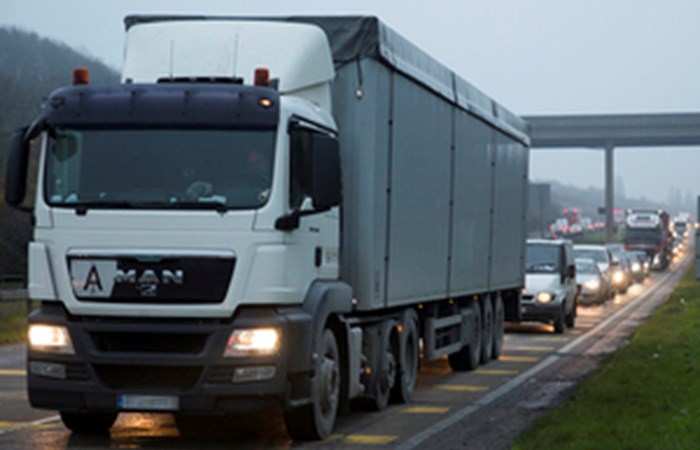govt

The government has today (7 February 2018) introduced legislation on cross-border haulage as the UK continues its preparations for life outside the EU.
The UKs overall aim in the negotiations with the EU is to maintain and develop the existing liberalised access for commercial haulage, as part of the wider future partnership.
It is possible that the future deal with the EU could require a form of permitting system and the government will need to have legal frameworks in place to introduce a new administrative system if required.
The Haulage Permits and Trailer Registration Bill, which was introduced by Baroness Sugg in the House of Lords, gives the government this flexibility.
This is part of wider government preparations to ensure the UK can deliver a smooth and orderly Brexit, as we move from our current membership of the EU to our future partnership. This bill gives the UK the powers we need to support UK hauliers to continue operating internationally after the UK leaves the EU.
Chris Grayling, Transport Secretary said:
Our road haulage industry is right at the heart of the 110 billion of trade that takes place between the UK and EU every year.
We believe reaching an agreement to continue the liberal access enjoyed by both sides is in everyones interests and remain confident we will do so.
But I also understand that hauliers are planning for the years ahead and want to have certainty that any future deal can be implemented smoothly so this Bill ensures we have plans in place if the deal requires a permitting system.
Key elements of the bill include:
- arrangements to enable a permit scheme if required as part of a deal with the EU ensuring UK hauliers can obtain the necessary paperwork to provide services to and from EU countries
- the establishment of a trailer registration scheme in line with the 1968 Vienna Convention - this will ensure UK operators driving on the continent can comply with the requirements of those EU countries which require the registration of all trailers travelling on their roads
Some European countries have agreements with third countries which require a permit as a condition for hauliers to operate across borders. The bill will ensure we are prepared to manage the issuing of permits should this be needed as part of post exit arrangements.
Through a separate parliamentary process to the bill, the UK intends to ratify the 1968 Vienna Convention on Road Traffic. The convention was introduced by the United Nations to build on earlier conventions that enable international road travel and increase safety by establishing common traffic rules.
Under the conventions terms, access to foreign roads is only guaranteed for registered motor vehicles and trailers. The bill will therefore enable the UK to introduce and enforce an international trailer registration system. Mandatory registration will apply primarily to commercial trailers travelling internationally.
The UK already conforms to the majority of aspects in the convention through the Highway Code. Exemptions will be applied to some of the articles within the convention.
James Hookham, Deputy Chief Executive of the Freight Transport Association, said:
The Freight Transport Association supports this bill as a sensible contingency measure, but one that exporting and importing businesses hope never has to be used.
Any decision which will enable the frictionless movement of trade to continue between the UK and EU is to be welcomed, and the UKs logistics industry needs reassurance that business as normal can continue throughout the negotiations and transition period.
We also support the governments objective of ensuring that no limits are set on the number of goods vehicles crossing between the EU and UK after Brexit, to ensure that Britain and its European neighbours can maintain an effective trading relationship.
Roads media enquiries
Media enquiries 020 7944 3021
Out of hours media enquiries 020 7944 4292
Switchboard 0300 330 3000
Related Articles
Comments
Write a Comment
Ministerial Departmental News
- PM's Office, 10 Downing Street
- Cabinet Office
- Department for Business, Innovation and Skills
- Department for Communities and Local Government
- Department for Culture, Media and Sport
- Department for Education
- Department for Environment, Food and Rural Affairs
- Department for International Development
- Department for Transport
- Department for Work and Pensions
- Department of Energy and Climate Change
- Department of Health
- Foreign and Commonwealth Office
- HM Treasury
- Home Office
- Ministry of Defence
- Ministry of Justice
- Northern Ireland Office
- Scotland Office
- Wales Office
- See all departments
